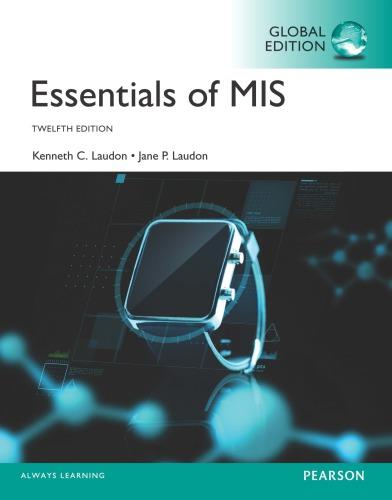Question
respond to your peers in a substantive manner.PLEASE DO READ THE POST 1 and 2 and respond to on what can you say about each
respond to your peers in a substantive manner.PLEASE DO READ THE POST 1 and 2 and respond to on what can you say about each of them, basically if you agree with it or not or what is your beliefs about it.
1. If the physician placed an order for a 1.5 liter a day fluid restriction on a patient, I would aid the patient by educating them. I would inform them that foods contain fluid and that foods that become liquid at room temperature should be limited. I would recommend using a measuring cup so that they can record how much liquids they have consumed. This can help keep track of the fluid content or they can use the same cup to make it easier on themselves. They will also need to know that they shouldn't drink everything at once. It should be spread out throughout their day. That includes any watery fruits, ice, yogurt, sauces, soups, and all drinks. I would recommend keeping a fluid log to track how much the patient is drinking. The other way I would aid a patient is by asking the dietitian for a meal plan so that the patient isn't overwhelmed or if they simply don't know how to keep track of their fluid intake it would be a big help to them. This should be helpful for a patient that is unaware of how to calculate their fluid and so they don't surpass the 1.5 liters a day. This would make it easier on a patient to track the fluid in the foods they consume since the dietitian would be able to assist in what that patient can consume, how much of it, and what they need to avoid eating.
2. One of the main problems with heart failure is excess fluid in the body. Maintaining just the right amount of fluid intake for people with chronic heart failure is vital. According to Medline Plus (2020), the heart does not pump out enough blood in patients with heart failure. Therefore, this causes fluids to build up in the body, and more fluid in the bloodstream makes it even harder for the heart to pump (British Heart Foundation, n.d.).
Monitoring and education are the two keys that I would use to help Mrs. Jackson follow and manage her fluid restriction due to her chronic heart failure. I would advise her to write down how much she drinks daily to form a habit of limiting her fluid intake and stay within her limit of 1.5 liters or 1,500 militers a day as instructed by the doctor.
Furthermore, I will educate the patient on sodium, which holds on to extra water in the body and promotes thirst. For this reason, I will encourage Mrs. Jackson to limit her sodium consumption to help lessen fluid retention. In addition, Medline Plus (2020) also stated in their report that chewing gum, rinsing the mouth with cold water, sucking on hard candy, slice lemon and ice will help reduce thirst, which I will also apprise the patient (Lantorno & Zieve, 2020).
Meanwhile, food and fluid charts are important ways ofassessing patients' nutritional and fluid intake. Dietitians rely on these to an effective patient diet and treatment plan. All fluid intake must be reported to Mrs. Jackson's dietitian to ensure that the patient receives adequate nutrition and hydration.
Step by Step Solution
There are 3 Steps involved in it
Step: 1

Get Instant Access to Expert-Tailored Solutions
See step-by-step solutions with expert insights and AI powered tools for academic success
Step: 2

Step: 3

Ace Your Homework with AI
Get the answers you need in no time with our AI-driven, step-by-step assistance
Get Started


